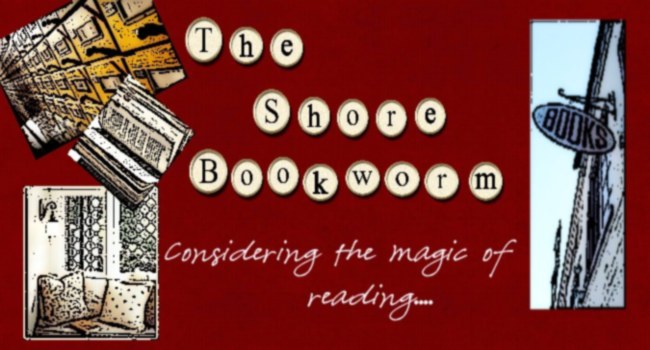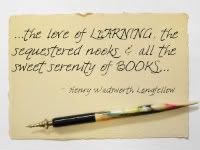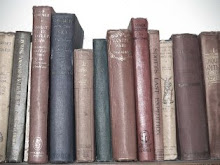Because of who I am, I was ripe for The Help. When I originally went back to school for my Master’s, I started in the Social Work program. I am simply fascinated by people’s stories: where they came from, how they got to where they were, how their lives were different, or the same, as what they had envisioned for their future. Unfortunately, that fascination did not extend to helping people solve their problems. I just wanted to hear their stories and yell “Next!” Not helping people with their problems is less than a stellar quality in a therapist. So it was time to reconsider my goals. But my love of a good story has abided.
Therefore, when I found The Help last summer, I really enjoyed it as a decent, engrossing read. The book told many intertwined stories and it told them smoothly. I am a sucker for a well-crafted narrative and I especially love it when it is complex and multi-dimensional, which The Help was. Contrasting the experiences of middle class white women and their maids in Jackson, Mississippi during the 1960’s, individual stories abound. Even though it is fiction, the stories in The Help ring utterly true. Black women labored for white families cooking, cleaning and raising their children with insulting pay and crushing hours. They were heaped with abuse and insults, both petty and egregious. You just know every anecdote about racism, indifference, paternalism and humiliation told in The Help has a basis in reality. As you read you cheer on these women who are brave enough to share their experiences with Skeeter, the character who is the driver of the plot. A forward thinking recent college grad, she has the brilliant idea to interview the help to get their perspective on the inequities in the South of the early 1960’s. Initially reluctant, multiple women are eventually persuaded that they are answering a call from God, serving a higher good…WAIT!! STOP!!!!
While it bothered me a little at the time, it took almost a year for some things to fully occur to me.
The 1960’s? Mississippi? Where beatings, shootings and church burnings to prevent integration were routine? Where Medgar Evers was murdered in front of his wife and children in 1963 (as is briefly referenced in the novel)? Where in 1962 the Governor of the state defied the President of the United States by blocking the enrollment of a black student at the University of Mississippi?!?! In this setting, black women, maids, of humble origin and little education and with absolutely no one to protect them, chose to tell their stories for a book? For a white girl?!? Amazing!! Then this must be the story of how that happened and, boy, do I want to read that original book!
Except…there was no original book. Nothing like this ever happened. Oppressed and exploited women did not rise up at the behest of friends and their preacher to tell the stories of their mistreatment. Because, pure and simple, it would have cost them their lives. Right there, we have a major plot problem for The Help – the characters are lively, the stories are compelling, but the entire basis for the book is not only improbable, it is impossible. No black woman was going to risk her life and that of her family to indulge a white girl in her curiosity. They were too busy simply surviving. That is why there is no tell-all book.
So it couldn’t have happened, big deal, you say. So it is a fairy tale. Other books are about made up scenarios. Well, I still have a problem with it, because it does not promote itself as a “what if” book. What if black maids banded together and told their stories in the 1960’s? What if it became a best seller and discussions about race led to a better understanding and an abbreviated civil rights struggle? The Help does not ask those questions. It tells us, this is what happened. It tells us to feel good about the victory of good over evil. And we know in our hearts it didn’t.
I haven’t seen the movie yet, so I cannot comment on it with any credibility. I have watched several trailers for it and, to be honest, it looks beautiful. The acting is earnest and funny. The dignity of the main black character, Ailbilene, is transcendent as portrayed by actress Viola Davis. But I became more and more uncomfortable as I watched the clips and listened to commentary by people involved in making the film. They spoke of the bravery of these fictional women. Check. But they spoke of the bravery of these women speaking out as if it were an actual fact, as if this had happened. And that was just embarrassing to listen to. There was cheering as ‘the book’ was published, a triumph for these ladies. But in real life there was no such triumph. There were just more years and years of subjugation and exploitation.
The Association of Black Women Historians took enormous issue with the film and book and issued a blistering condemnation. A published statement says, in part, The Help “distorts, ignores and trivializes the experiences of black domestic workers.” I do have to disagree with that. If anything, the book creates rich, multi-dimensional black characters that are worthy of admiration and honor. The ABWH goes on to denounce the perpetuation of the “Mammy” stereotype “…asexual, loyal, and contented caretakers of whites.” Again, I disagree. In the novel, these strong and decent women seethe against the injustices they face every minute of the day. I do agree with their opinion that The Help misrepresents history and minimizes the Civil Rights movement.
There are others in the black community who argue this book is significantly racist, written from the perspective of a white savior (Skeeter) raising these poor downtrodden beings out of the mire. Once again, I do not see that. Maybe that is because I am white and inherently insensitive to the nuances of racism. I am the first to admit that is entirely possible. But I had the reverse impression about the albeit mythical situation. The characters were doing Skeeter the favor by sharing their private and personal experiences. She is clueless really, they are the ones who have the knowledge and ultimately the power to make or break her book.
I do agree with the argument that racism is presented as an evil centered in that period only and we can sentimentally look back and say “Phew, thank goodness we don’t act like that anymore!” I have been doing a lot of reading about the controversy and some of the comments people leave make it obvious the concept of ongoing racism is truly foreign to them. They really believe that people of color no longer face discrimination or injustices. Others are clearly astonished by the perceptive and intelligent black characters. It is both appalling and embarrassing to see the ignorance that people demonstrate with remarks like “Why do we have to talk about such unpleasant things?” and “I don’t even notice people’s color” or, worst of all “I have a black friend and she…”
On the whole, I think the novel has opened an interesting door for discussion and consideration. I am disappointed that Stockett and the story, movie and book, have produced such vitriol. Because the novel is well intentioned. And because it is a perfect opportunity to talk about the status of race relations in America today in an amicable way. Racism diminishes all of us. It should go without saying that we need to always try to have insight into what it would feel like to be on the receiving end of it and do what we can to eliminate it. We need to recognize subtle racism and how it reduces value in our culture. We need to transmit these messages to our children in the strongest way possible.
What I would love to see is a real “Help” created. Like Steven Spielberg’s Shoah project, let’s get these true voices and stories recorded before they are gone. There was and is strength and courage and nobility in the lives that were led and we need to know those brave women who were the help but were kept silenced by danger and disrespect.
I would say read The Help if you like a good, if fantastical, story. The narrative in The Help may be told through a white lens, but that is the only have the lens white people have. We can try to imagine another's experience, but that is all we can do. I feel even if it is imperfect on many levels, the book still tells a story that many people need to read. I suspect it presented some people with ideas and concepts about race that they had never considered. Just as some people are astonished by any controversy surrounding the book and movie. But even if imperfect, someone expanding their humanism cannot be a completely bad thing.
However, an even better representation of the black experience can be found in Isobel Wilkerson’s The Warmth of Other Suns. It is an analysis of the south to north diaspora told through the perspective of three real individuals. An absolutely haunting and gorgeously written epic, it should be required reading in every school. You read this book and you get some inkling of what it is like to feel fear and experience deprivation every waking moment just because of the color of your skin.
I wrote this in a comment in response to a woman who said “I wish we could stop looking at color.” I don't think we should stop looking at color. I think we should stop assuming things based on color. I wish we could consider things like skin color and national heritage to be beautiful, fascinating but superficial features. Maybe someday that will happen and we will be able to celebrate our common humanity. But until that distant day arrives, we have to continue to discuss the realities of the past and the present.
I think more than anything the book reminded me that we are all human beings. At the end of the day, we are the same in what matters to us, dignity, respect, our families, our friends, the lives we lead. We have to keep working at understanding each other and at getting it right.
 Did you like this post? Let others know!
Did you like this post? Let others know! 

















7 comments:
Wow, Marie. This is a very thoughtful post. And wonderfully written. I read the book and loved it. Because I love a good story. I don't care if it didn't really happen and I wasn't aware if anybody was trying to say that it had. At least as far as the book goes. I knew there was some controversy about "What does a white girl know about...", well, the author addresses that actually, and the main character is a white girl, for one thing. And she knows that area because she grew up in it. And who cares if it's historically inaccurate? It's a work of fiction which gives you creative license and I had never heard that she was trying to claim that this was how it all happened.
Maybe they're only saying it's a true story when talking about the movie? Because it's the thing to say about a movie, whether it's true or not when you're busy promoting it. Maybe I'm not up on all the arguments about it. I've been listening and cheering the fact that the author thumbed her nose at the Hollywood executives who would have tried to ruin the movie with their own people instead of who she had chosen.
Regardless, great post, Marie!
Thanks Margaret!! I really appreciate your kind words.
Maybe I should have clarified that a little, it's not that anyone is saying per se it is a true story. It is just that is the implication. And, I guess, the wish. The clips from the movie I have seen movingly show the crowd of maids in Aibilene's living room, the book proudly being displayed in a shop window, people reading it, and freaking out, all over town. It is the plot turn as in so many 'feel good' movies and books, where the downtrodden finally get their day. So it is implied this happened. Believe it or not, some people do not know something like this never occurred.
If you are interested, here is a link to a BlogHer writer who has a very strong objection to both the book and the movie. She makes some interesting points. Her perspective inspired me to do some more reading and I found the opinions really thought provoking.
http://www.blogher.com/help-feel-good-moviebut-whom
Thanks so much for your comment! :)
Wow, Marie. Just wow. I was so excited to see a new post from you and came skipping over to get absolutely caught up in every word. Glad to see you again, and thank you for blowing me away today!
Very thought provoking post, Marie. I have read the book and seen the movie. My take-away from the book was a little different than from the movie. As in all movies the characters were less developed in the movie and entire characters were left out. Still the movie is great and totally entertaining.
I was very interested in reading the book when it came out as I was living in the South in 1960-1963 as a grade schooler. I lived with my grandparents that were share croppers on a farm owned by very wealthy Southerners of distinction. I could see both sides of the coin. As the white farm workers we were above the black segregated help but most certainly below the owners. I thought even as a child the owners were naive to the feelings of people that they deemed not their equal. I am not sure they ever intentionally rude or mean spirited. Generations before them taught them to be as they were. As I would have picked cotton with the black help, I found them to be hard working and kind to me. I actually got treated very well from both sides as a motherless kid they took pity on me I think.
Anyway, I am getting long winded here. I enjoyed the story and I would like to think that a kind hearted person like Skeeter would have championed the cause for the employers to be kinder and more cognizant of the hard work the help did.
As in all movies, don't you want the evil villian to get theirs in the end. Hilly was evil and Skeeter was the hero.
One more thing..My son went to Old Miss years later. There were still similarities in the 1990 as to those I saw in the 1960s.
Hi Marie,
I read The Help a couple of months ago but have not seen the film yet. (not sure is it's been released over here yet) and I have to agree with what you say. I found it engrossing, entertaining and quite eye-opening but also there was that little bit of me saying, as you said, that it was a bit "fantastical". That said, I don't really think that matters; it is just a "story" and the messages it conveys about racism, in my opinion, far outweighs the methodology/plot.
The good thing is that sometimes people really do stand up for what they believe in and risk their lives for the sake of justice and obviously many coloured people have done this over the course of history , not least MLK. For me what felt wrong about the plot was that Skeeter's crusade initially stemmed from her desire to write and not really her desire to fight injustice which made her the least appealing character - I really wanted the maids to rise up and speak up for themselves without her - or I would have preferred a white woman who wasn't a social misfit herself who had the courage to stand up and say "this is wrong" because she believed in equality through reasoning and not because she had frizzy hair.
Blimey, I'm such an idealist at times! Total idiot:))
Ah t'was a great book though and amazingly written for a first time novelist.
A really thought provoking post Marie. Great stuff:)Award yourself a bottle of vino and a chocolate bar!!
Nicky - I am so flattered that you were excited to see a new post!! I have to admit, I was excited to be getting back to this poor neglected blog. I really need to get my writing act together! :( I am so glad you liked the post! Thank you so much.
Cheryl - Thanks so much for your fascinating comment! Not long winded at all. As I said in my post, I love people's stories and you have a great one there!
I appreciate your perspective. I am not surprised some things have not changed at Old Miss. Racism is still America's dirty little secret. Or not so secret. :(
Jane - Thanks so much for your great comment! The Help is and amazing accomplishment for a first novel, there is no question there. Good point. It is an engrossing, well written story.
And that is a really good point about Skeeter, that initially it really was all about her and launching her career. Others have picked up on that as well as part of the racist complaint.
It is a complex subject and a very emotional one. If nothing else, hopefully good will come from the issues and discussions the novel and movie raise.
Thank you all for reading and commenting!!
Nice review. Racism and peoples' reactions to it are not something I would have the guts to write about. Very well done.
Post a Comment